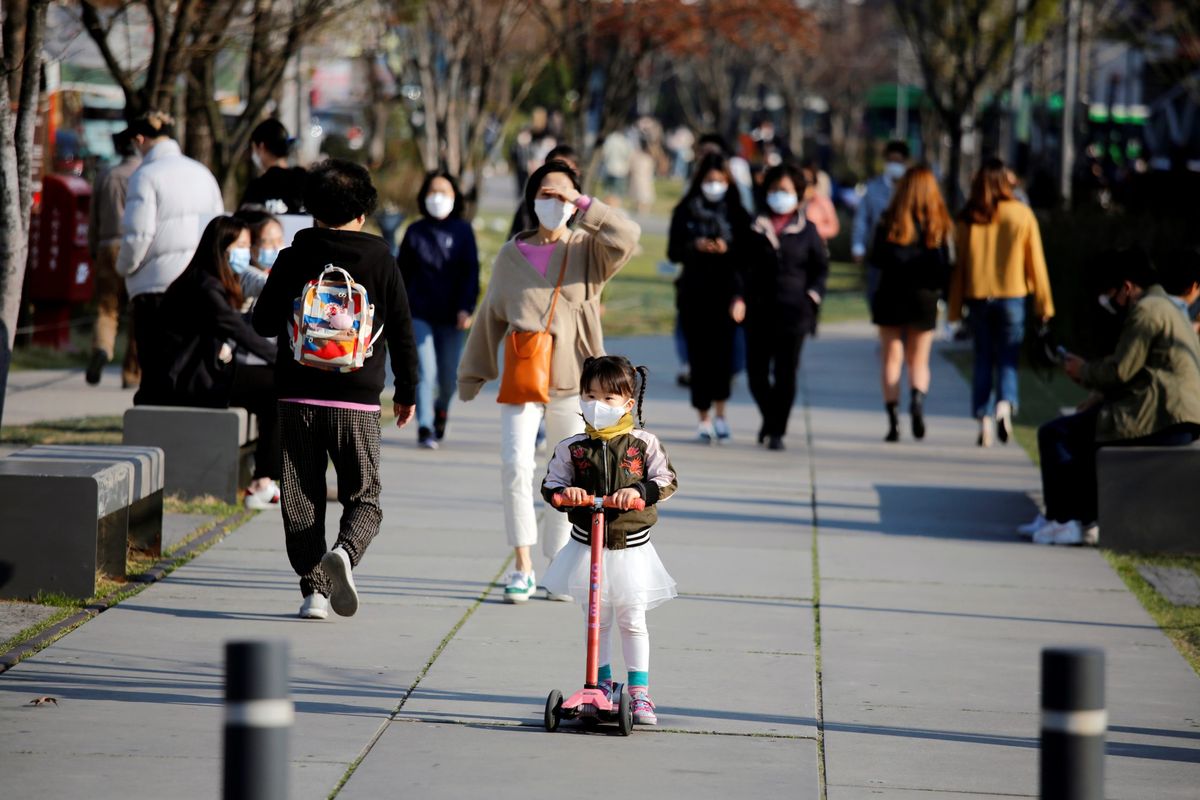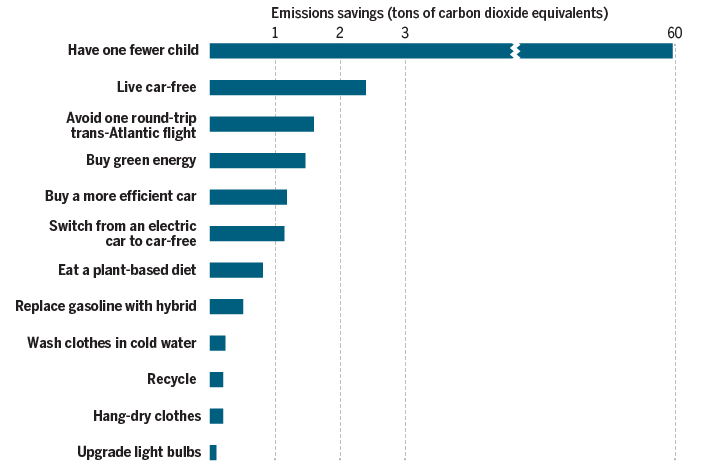Here are some of reasons why the younger generations are choosing to be child-free

A few minutes every morning is all you need.
Stay up to date on the world's Headlines and Human Stories. It's fun, it's factual, it's fluff-free.
“The very unromantic part of fertility is that it’s really largely driven by economics. For women who face recessions in their early 20s, we see persistent effects that mostly grow over time. With millennials, this pandemic is definitely not good news.”
People are really having fewer kids?
- Yeah. So, a study last year from the University of Washington found that globally, the rate at which people have kids has declined significantly over the past 60 years.
- In the 1960s, when fertility rates peaked globally after World War II, annual growth was 2.09%. In 2023, it’s expected to be less than 1%.
- There are also several economies with fertility rates below what’s known as the replacement rate, which is 2.1 in developed countries.
- This value represents the average number of children a woman would need to have and the level of fertility at which a population can replace itself from one generation to the next.
- Both North America and Europe are well below that replacement rate, with fertility rates of 1.75 and 1.61 respectively between 2015 to 2020.
- East Asia also has low fertility rates. In the same few years, South Korea had a rate of 1.11, Japan, 1.37 and Taiwan, 1.15.
Why’s there a decline?
- According to Morning Consult polling done in September of last year, there are a variety of reasons.
- Money seems to be the biggest factor for most people.
- 59% of millennials without plans to have kids who responded to the poll said that the costs to raise children are too high, with 44% citing concerns about both the political and economic environment being too unstable.
- Another concern revolved around career, with 53% of millennials saying that they wanted to focus on their job instead of committing to children.
- The pandemic has also played a role in all of this, with 15% of millennials without children saying that the pandemic has made them less interested in having children.
How did the pandemic affect interest in having children?
- According to economics professor Dr. Hannes Schwandt, the economy’s performance has a significant influence over whether or not women want children.
- “The very unromantic part of fertility is that it’s really largely driven by economics. For women who face recessions in their early 20s, we see persistent effects that mostly grow over time. With millennials, this pandemic is definitely not good news.”
- Dr. Phillip Levine, a former senior economist at the White House Council of Economic Advisers, which studied the economics of fertility, explained that economic recessions “takes people years to recover; this isn’t something we’re going to get out of relatively quickly.”
- But there’s another factor here at play that isn’t quite like the others – climate change.
How’s climate change related?
- Well, when it comes to reducing one’s carbon footprint, deciding to have fewer kids is a pretty significant way of doing it.
- How significant? Well, by choosing to have one less child in their family, that family would decrease their carbon footprint by 58.6 metric tons each year in developed countries.

- “Having a child is 7-times worse for the climate in CO2 emissions annually than the next 10 most discussed mitigants that individuals can do,” said analysts at Morgan Stanley in a July note to investors.
- But some of the reasons people aren’t having kids seems to be more related to the effects of climate change and the world that their kids might have to live through.
- “Both the climate and my child will affect each other adversely,” said 34-year-old Todd Bissell, a ride-share driver in Boston to TMS. “My child will contribute toward global warming and the subsequent calamities will affect my child.”
What are some of the fears around low birthrates?
- Well, the looming fear is that if fertility rates keep going down, eventually, the human race will enter the first-ever phase of prolonged depopulation.
- Depopulation has happened in the past, but it’s always been caused by things such as war or famine.
- It’s estimated that for most of the world’s countries, this depopulation could begin as soon as 2050. And, there is a fear that If the world does begin depopulating, that there won’t be enough people in the workforce to take the jobs it’s been built to accommodate.
- On top of that, people who enter retirement mean that the number of people who draw social welfare benefits would increase as the amount of workers decreases.
- Basically, the size of the economy won’t really be shrinking, but the number of people able to drive it forward will be.
What’s next?
- If more provisions are made to mitigate the effects of climate change, it’s even possible that some portion of the population will begin to want and have kids again, without the fear of adding to the climate crisis.
- But it’s important to remember; the climate emergency is fueled by environmentally unsustainable business practices, such as burning fossil fuels, that lead to an increase in greenhouse gas emissions, not population growth.
- With this, China, for example, has implemented some broad and swift measures to try and achieve ambitious climate goals. It includes limiting or temporarily closing down factories in the country so that climate targets are met, even if it comes at the cost of economic growth.
- But this sense of urgency isn’t shared around the world.
- For example, Australia, the world’s top coal and a major gas exporter has repeatedly refused to commit to phasing out fossil fuels anytime soon.
- In late September, Australian Prime Minister Scott Morrison said, “We don’t have to, because that change will take place over time. We are working on the transition technologies and fuels and the ultimate technologies that will be there over the next 20, 30 years that can get us to net zero … This doesn’t happen overnight."
You drive the stories at TMS. DM us which headline you want us to explain, or email us.







Comments ()